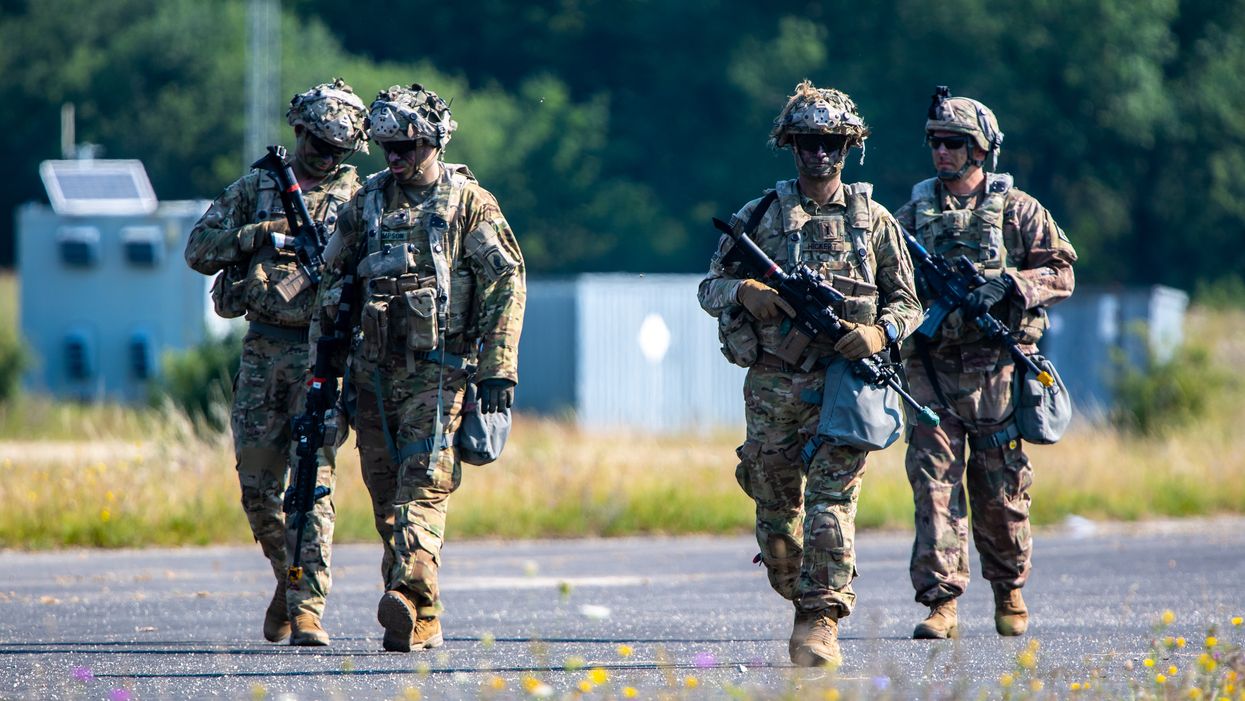The promise of technology, like almost everything this year, has become more polarized.
Still, there's reason to be hopeful. Working in the technology industry, I certainly have my biases. The outsized impact of technology on the way isolated or distant communities can interact with the world colors my every view.
It allows individuals globally to foster real-time connections — the true potential of which we've seen, as never before, in the six months since the coronavirus compelled most business and personal communication to become remote. And it empowers disabled individuals to live more independent and full lives. I'm currently working on self-driving cars, and I'm excited about how the technology will help expand the mobility of the elderly and visually impaired.
To me, the unifying thread of the adoption of technology is access: facilitating activities and engagement that were previously impossible.
The explosion of technology-driven options driven by the pandemic promises to level the playing field for many types of individuals, and we are just starting to tap its potential.
With so many of us relying on technology today to connect with our families, conduct touchless financial transactions and educate our children, it's surprising there is so little faith in technology when it comes to elections.
I understand the apprehension. But we have to acknowledge our great democracy has significant blind spots and gaps — and many voters have limited access to their ballots. First on the list are a group of voters we cannot afford to leave voiceless: those risking their lives around the world to protect our freedom and our great democracy.
More than 200,000 troops are stationed overseas across four continents, serving Americans and our interests. All the arguments against integrating technology into our election don't seem to take into proper account this reality: The options they currently have for exercising the franchise — using the mail, a fax machine or their email — are all vulnerable to the risks that have been solely ascribed to new, online technology. Election officials are able to identify who submitted a ballot, and that leaves our people in uniform without a private ballot or a secure way to anonymously vote.
Traditionally, we rely on our overseas Americans' ability to cast ballots by mail. But in the middle of a pandemic, where mail was not being delivered to the United States from more than 70 countries as of the end of July, filling out a ballot may be more a symbolic gesture than something that actually affects the races for president, Congress and the statehouses.
It's little wonder that, even with only the obstacles in place before the Covid-19 outbreak, only 7 percent of our eligible military and overseas voters vote. And that compares to roughly 60 percent turnout of eligible voters back home. When so many issues on the ballot can have an outsized impact on their lives, this number is representative of a failure.
There's resistance — from cybersecurity researchers and vote-by-mail advocates — to using new technology that allows private, secure access to elections for our overseas military and citizens, arguing that the risks of hacking or failure are too high. When you view the current ways that they are voting (or, in the case of international mail, not voting) can we really argue that the security and privacy around the status quo is any better?
There's evidence that these technologies work, are secure and are welcomed by the communities that they serve. West Virginia is a prime example. Two years ago it pioneered platforms that allow their men and women overseas to vote on their mobile phones. Another is Utah, a vote-by-mail state, that uses app-based voting for military personnel and people with disabilities.
I'm not advocating for the rapid adoption of this new technology to the general public. This is too critical for that. What I'm advocating for is to implement advanced, up-to-date technologies used in most recent pilots to provide markedly better options to vote than by email or fax. We are already using smartphone technology, in most of our critical work including national security.
Now is the time to deploy advanced technology to identify, and then close any gaps, for groups of people abroad who qualify under federal law to return ballots through email and fax.
Such a step is how we will build a stronger electoral system that ensures access to voting for those who need it the most. This is how technology marches forward for social good. With purpose and strategy, with careful tests and ongoing experimentation, followed by a thoughtful implementation for the most disenfranchised.
Not doing so shuts out people who need a voice at the ballot booth, especially this year.



















